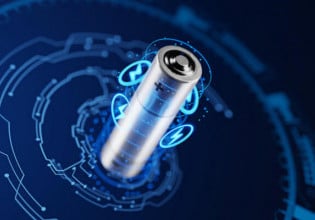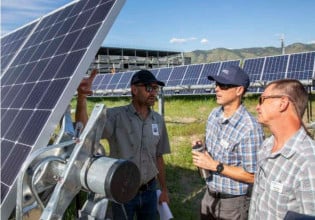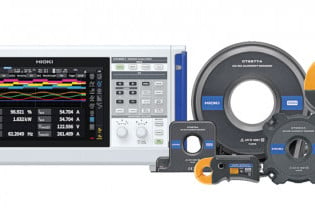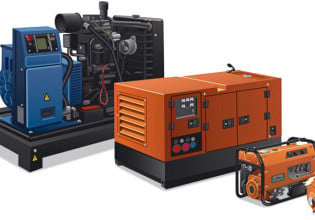EVs4ALL Receives $42M Boost From US DOE
This article explores some newly-funded projects under the Electric Vehicles for American Low-Carbon Living program.
Twelve projects have been selected by the U.S. Department of Energy under the Electric Vehicles for American Low-Carbon Living (EVs4ALL) program to receive $42 million in funding. The funding will support the development of advanced battery technologies for electric vehicles (EVs). The program’s goal is to promote domestic EV adoption, which can help keep the U.S. on track toward a zero-emissions future.

The key to promoting further EV adoption lies in developing next-gen battery technologies. Image used courtesy of Pixabay
Why Are EVs Important?
For all countries, lowering emissions is imperative to meet the requirements set out in the historic Paris Agreement. The international agreement endeavors to combat climate change and accelerate and intensify the actions and investments needed for a sustainable low-carbon future. The agreement aims to reduce global emissions, strengthen countries’ ability to adapt to climate change, and provide financial support for developing countries. The main goal is limiting global temperature increases to below 2 degrees Celsius above pre-industrial levels during this century.
EVs are becoming increasingly important for helping countries to lower emissions and meet their climate change goals. EVs can help reduce greenhouse gasses emitted into the atmosphere by providing an alternative to air-polluting, combustion-based engines.
According to the International Energy Agency (IEA), 2021 was a record year for EV sales. The agency reported 120,000 EVs sold globally in 2012, the same number sold in the space of a week in 2021. Plug-in hybrid and battery EV sales doubled year-on-year between 2020 and 2021, reaching 6.6 million. In another report from the IEA, a record 2 million EVs were sold in the first quarter of 2022, up 75 percent from the same time frame in 2021.
EVs4ALL Program and Projects
To ensure the steady and progressive adoption of EVs, the EVs4ALL program (run by the DOE’s Advanced Research Projects Agency-Energy or ARPA-E) focuses on developing advanced battery technologies that improve the cost of owning an EV, safety, and reliability. Projects under the EVs4ALL program focus on improving battery performance at low temperatures, achieving a suitable charge rate to help restore battery capacity to 80 percent, and improving capacity and durability.

A visualization shows lithium ions' flux as they pass into the battery's negative electrode from the electrolyte. Bright areas indicate high flux where ions come together and travel more rapidly through tight pores. Image used courtesy of the NREL
The organizations behind the 12 selected projects include Virginia Tech, Zeta Energy LLC, The University of Maryland (UM), South 8 Technologies, Tyfast Energy Corp., Project K, Sandia National Laboratories (SNL), Solid Power Operating, The Ohio State University, National Renewable Energy Laboratory (NREL), Ampcera Inc., and 24M Technologies, Inc.
Technologies Being Developed Under EVs4ALL
NREL was awarded $3,425,000 to assess information surrounding the risks of using next-generation battery cells. The laboratory will focus on consolidating knowledge concerning failure mechanisms, failure modes and effects, reaction pathways, and other areas that might help de-risk the next-gen cells for commercial use.
As part of the U.S. DOE eXtreme Fast Charge and Cell Evaluation for Li-ion Batteries program, NREL is also developing lithium-ion batteries (LiBs) that could allow EVs to charge exceptionally quickly.
South 8 Technologies will use its funds (of $3,152,000) to develop high-performance LiBs that use liquified gas electrolyte technology to enable faster charging.
Project K was awarded $2,587,618 to continue the development of a LiB alternative in the form of a potassium-ion battery. The battery will be designed to allow for faster charging and operation at lower temperatures.
UM will use its $4,852,733 in funds to ramp up the operating temperature range, energy density, and charge/discharge-rate capability of solid-state lithium metal batteries.
A solid-state battery developed by Ampcera will contain a thermally modulated cell technology (TMCT) formulated by EC Power. TMCT was used in conventional LiBs to power buses during the Winter Olympic Games of 2022. The TMSSB uses a high-voltage, nickel-rich lithium nickel manganese cobalt oxide cathode and a high-capacity silicon anode. Bringing together a SS electrolyte with high ionic conductivity and the TMCT will enable faster charging at ambient conditions. The TMCT also enables quicker cold startup times at extremely low temperatures.






